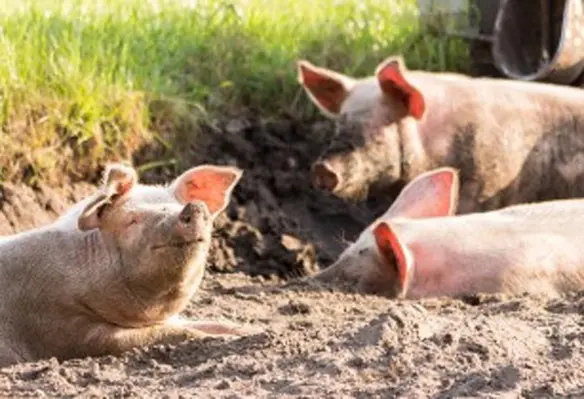Around five million pigs in Asia have died or been culled because of the spread of African Swine Fever (ASF)
While not dangerous to humans, the disease causes up to 100 per cent fatality in pigs, leading to severe economic losses to the pig sector.
ASF is present in six Asian countries including Cambodia, China, DPR Korea, Lao PDR, Mongolia and Viet Nam. The latest data provided by FAO indicates that current losses represent more than 10 per cent of the total pig population in each of China, Viet Nam and Mongolia.
With FAO support, other countries in the region are ramping up preparedness efforts to prevent further spreading of the disease.
“As there is no commercially available vaccine, we need to place greater emphasis on other disease counter efforts. Countries must be vigilant at borders – land, sea or air – in preventing the disease’s entrance and spread through the introduction of infected pigs or contaminated pork products. Outbreaks need to be reported immediately,” said FAO’s chief veterinary officer Dr Juan Lubroth.
ASF was first detected in Africa in the 1920s. On top of the Asian outbreak, Europe is currently experiencing a slowly-spreading epidemic among some of its wild pig population and some countries have introduced tight restrictions to limit the movement of wild pigs.
Emphasising the importance of best practices, FAO urges farmers affected by ASF to not move their pigs or pig products, emergency operators and veterinary authorities to oversee pig carcass disposal through burning or burial on location, and for countries to have sound compensation strategies in place to support cooperating farmers.
Economic impacts
The outbreak is particularly affecting vulnerable small-scale farmers who may lack the expertise or funds to protect their animals from the disease.
In Vietnam, the pork industry makes up almost 10 per cent of the country’s agriculture sector and pork meat accounts for almost three-quarters of meat consumed. The country has, to date, culled approximately three million pigs in an effort to curb the spread of the disease, raising concerns that ASF could contribute to an increase in food insecurity in already-challenged communities.
In China, there are around 26 million pig farming producers and about 50 per cent of total pork production is by small-scale farmers.
“Some farmers have lost their entire pig herd to the disease and it may take badly-affected countries years to recover from the socio-economic effects of the outbreak,” Lubroth said.




